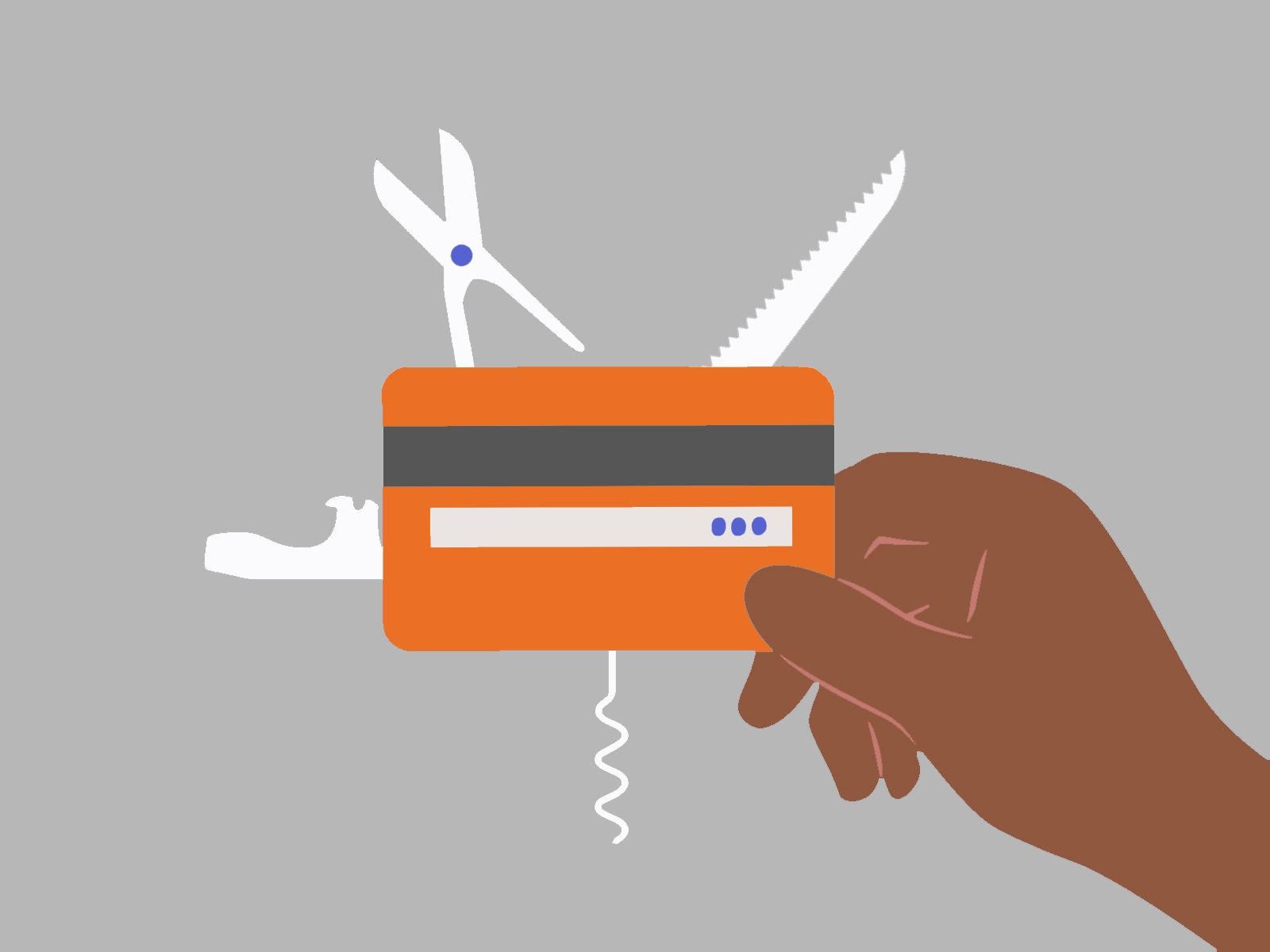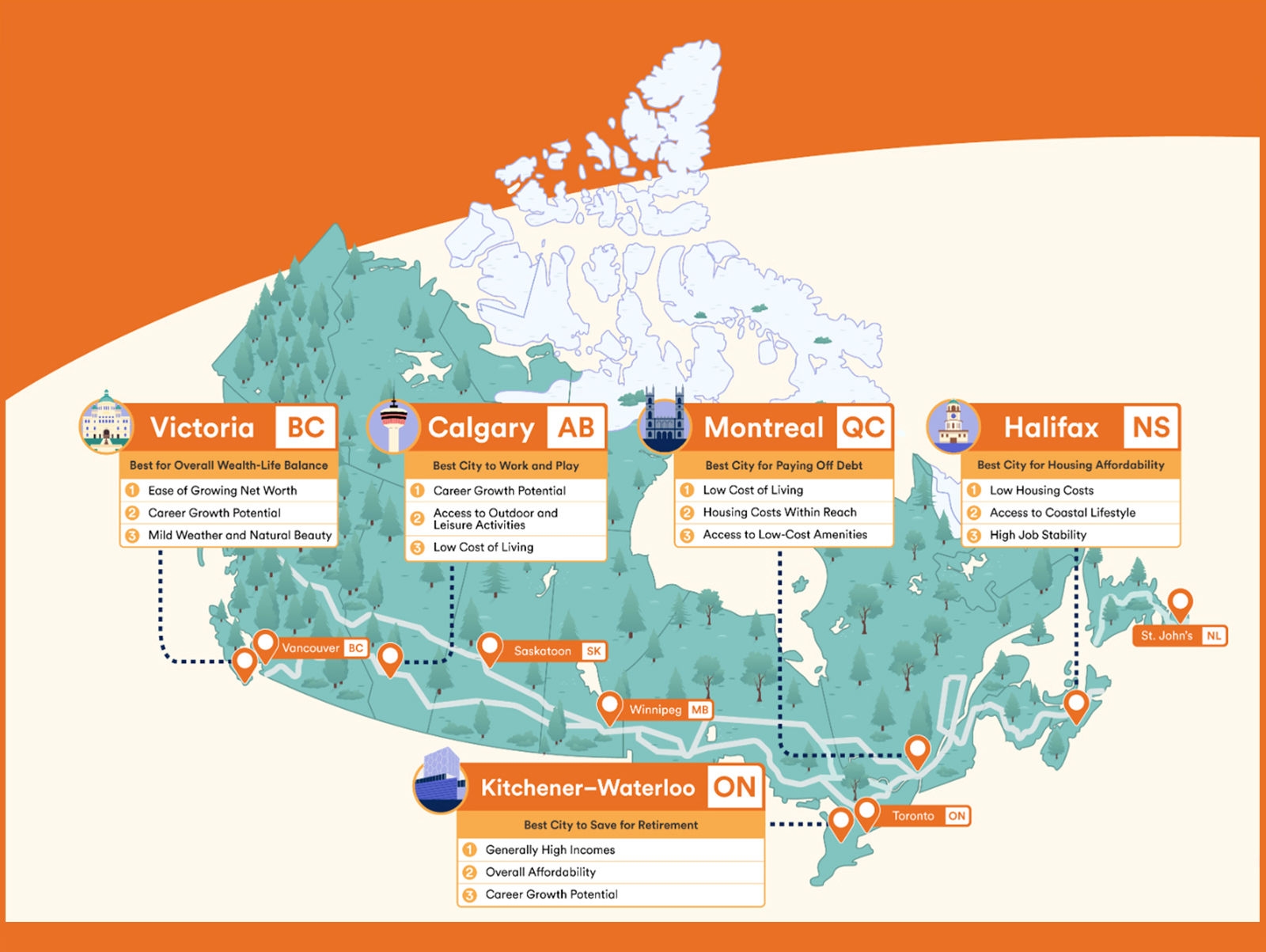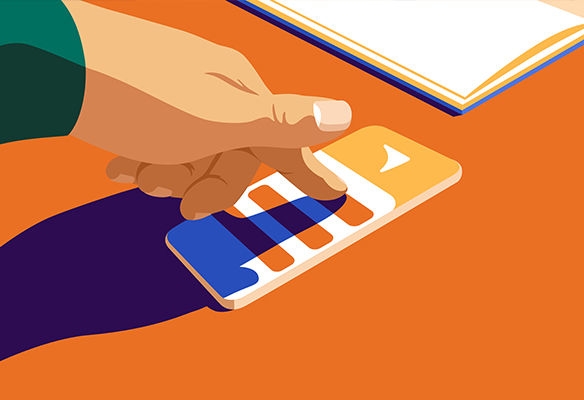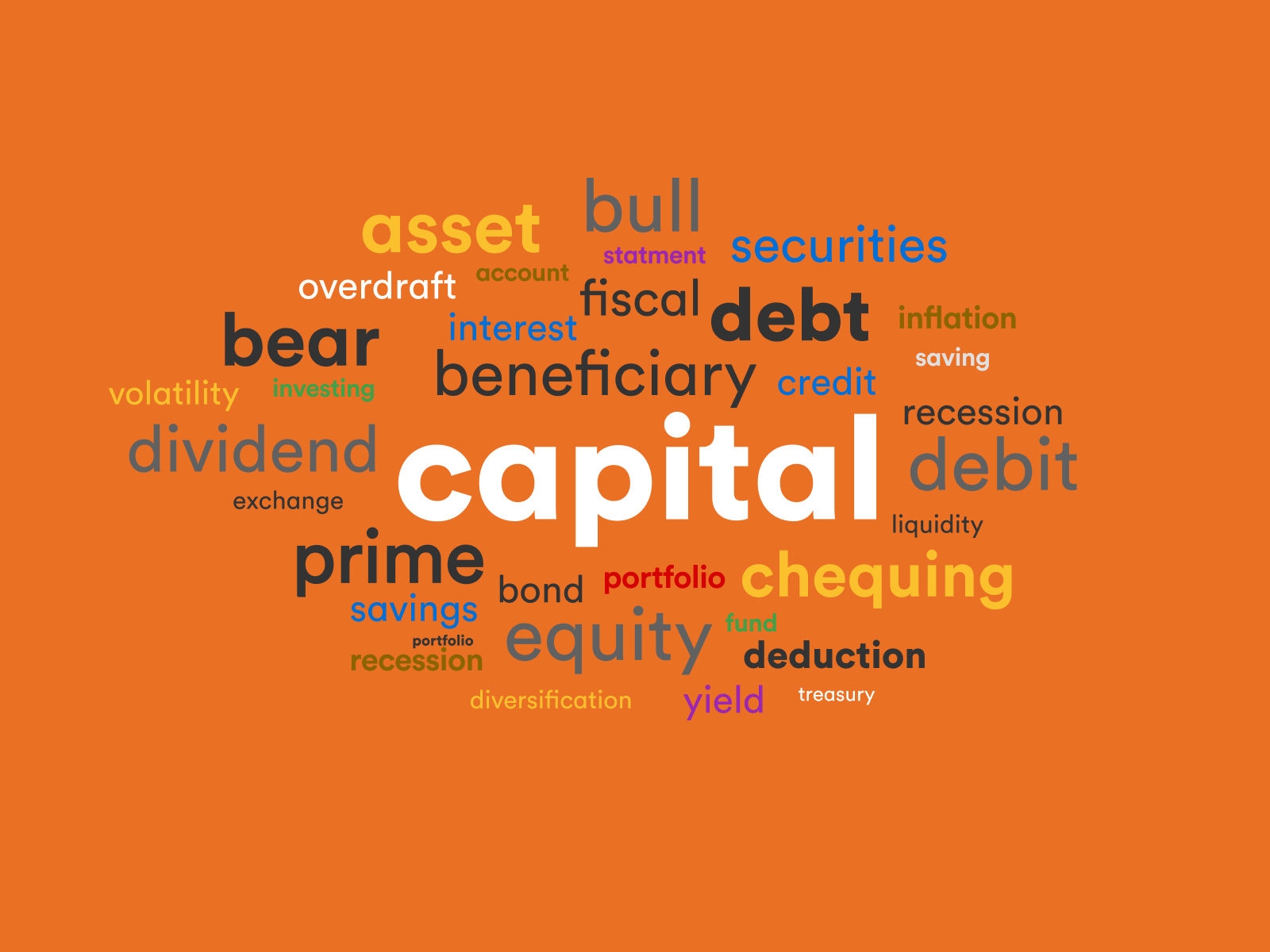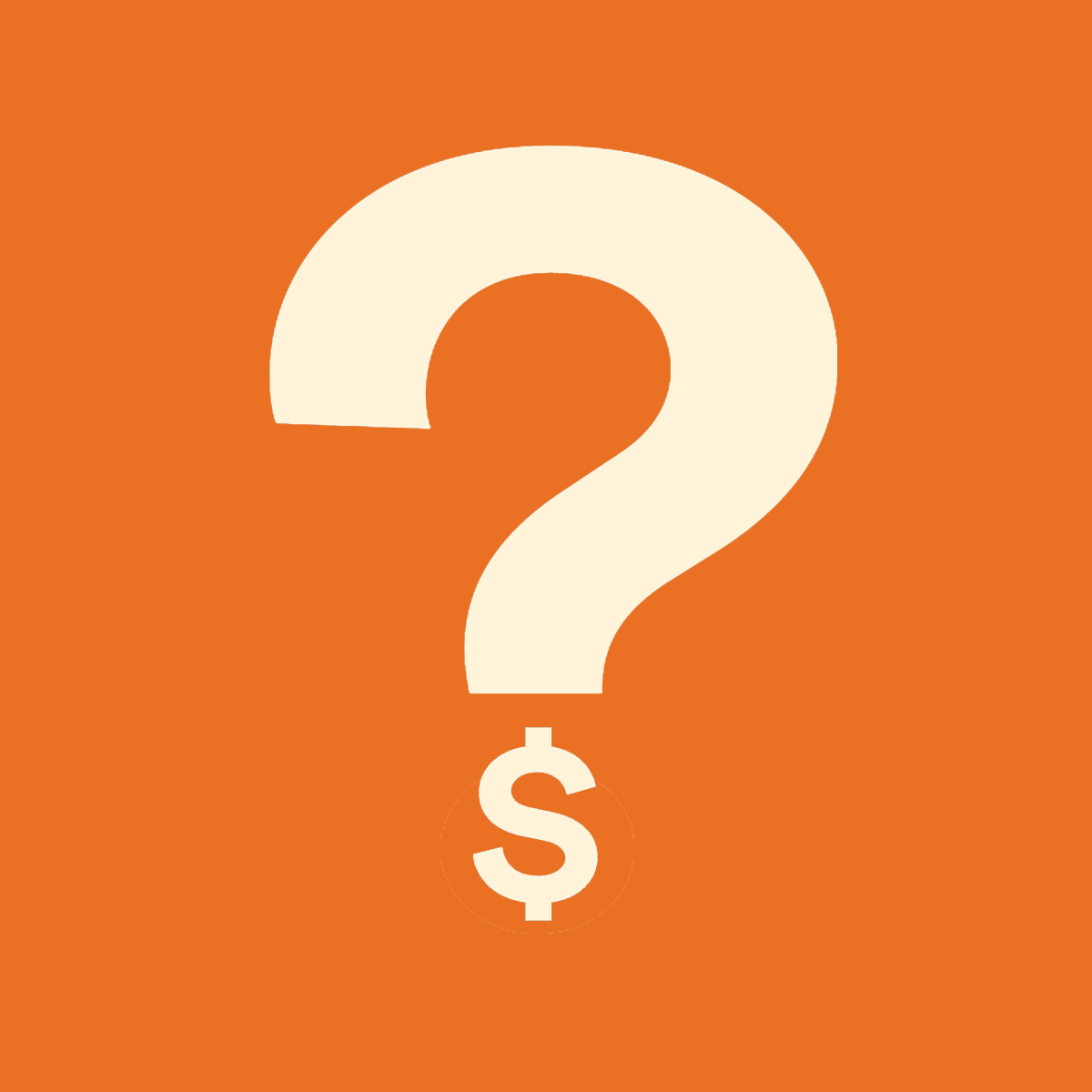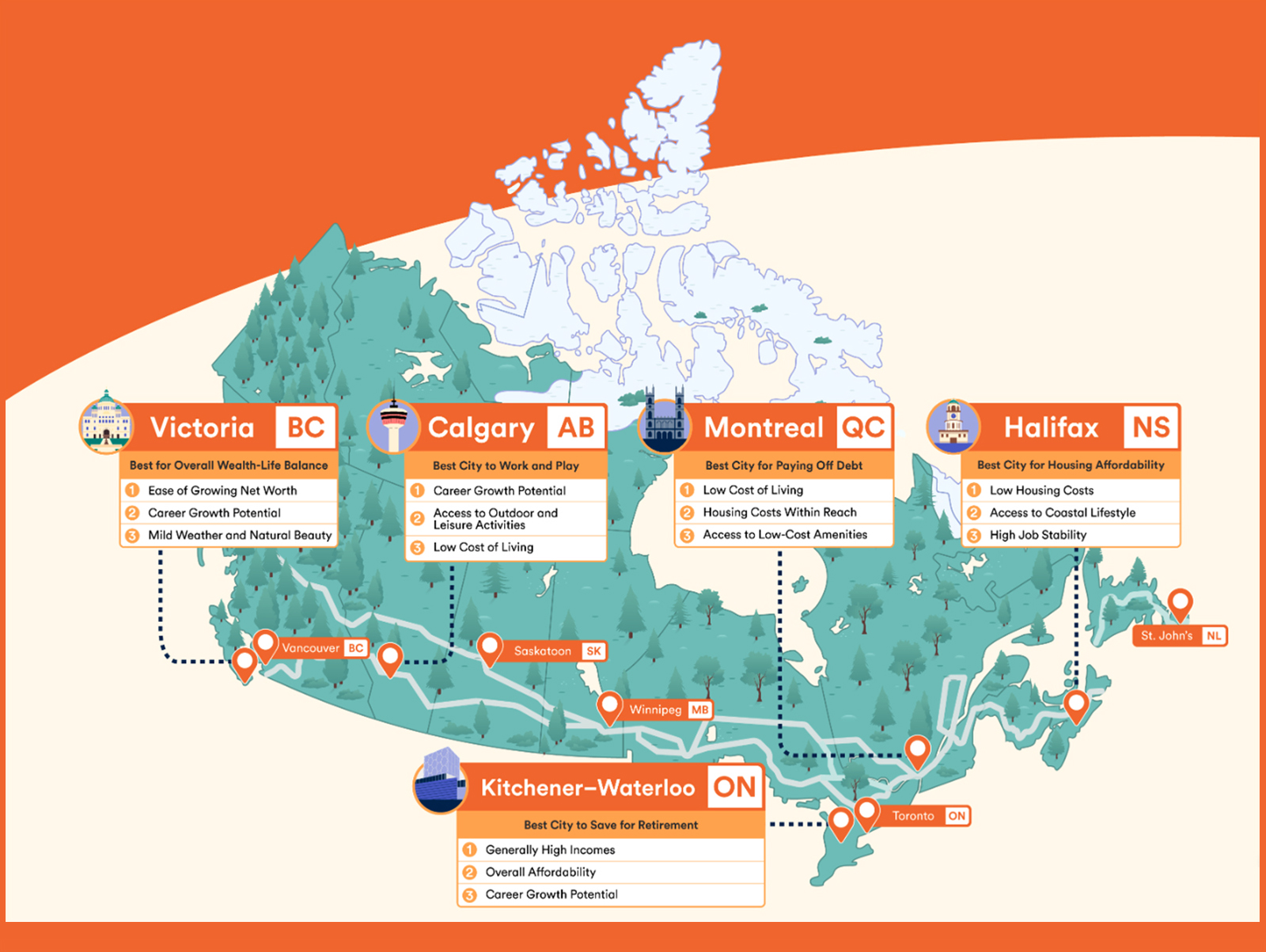From asset to yield: Financial jargon decoded
If the letters ESG, ETF, GIC, RSP, ROI and TFSA leave you scratching your head, you're not alone. According to recent research from Tangerine and the Angus Reid Group1, only 3% of Canadians could correctly name all six acronyms. Understanding the meaning behind these terms is the first step many take in building up the confidence to take control of their finances.
According to that same research, half of the Canadians surveyed said that they'd be more likely to invest if they better understood financial acronyms. And 82% of the participants believe that a good understanding of financial terminology can make investing less stressful.
The glossary of personal finance terms below can serve as an entry point into the world of saving and investing, help you make informed decisions and be a reference as you plan for the future.
A-B-C
APR: The annual percentage rate is the cost of borrowing money, factoring in interest and other fees. While interest is often calculated and added monthly, the APR is based on an entire year.
Asset: Something with economic value, such as houses, cars, stocks or bonds.
Bank of Canada (BoC): Not the sort of bank that allows you to withdraw cash. Nor does it sponsor sporting events. Among other duties, the BoC sets the policy interest rate that Canadian financial institutions use as a benchmark.
Bear market: This is what economists call a prolonged slump in the market — generally considered to be when prices in a stock market are down at least 20% from a recent peak. It's the kind of bear that crawls into a den and slumbers until the economy thaws.
Beneficiary: An individual officially designated to receive benefits from someone else's financial assets, such as life insurance, property, or retirement accounts.
Bull market: When security prices are rising and investors are optimistic (and buying), people call it a bull market. Usually, the term refers to stocks, and one common technical definition is an increase in stock prices of at least 20%. Think of it as a market that rushes ahead like a bull after a red cape.
Bond: Buying a bond means lending money to a government, company, or organization, with the idea being they pay it back to you with interest. They're often called a fixed-income security because they historically paid a predictable amount of interest, but nowadays, variable-rate bonds are available as well.
Capital gain/loss: Assets such as stocks and property are known as capital. When you sell them, the money you earn or lose is called a capital gain or loss.
CDIC: The Canadian Deposit Insurance Corporation is an independent Crown corporation whose job is to protect the eligible deposits Canadians keep in member institutions. The idea is that if the bank goes under, you still get your money — though, of course, there are limits and eligibility requirements.
Chequing account: Named after the quaint slips of paper that used to be a routine way of transferring money to others, these accounts are designed for your day-to-day banking needs.
Compound interest: Want your money to grow faster? When interest is compounded, any interest payments are added to the original amount (known as the principal), so the following interest payments are calculated on a higher amount. You're earning interest on your interest.
Credit card: A tool that lets you make purchases now and pay for them later. When you use your card, you're borrowing money. You must then pay it back based on the card's terms and conditions. Generally, you have 21 days every month to repay the amount of your last credit card statement without penalty. After that, interest gets added to any outstanding debt.
Credit limit: The most you can borrow at any one time on a credit card or line of credit.
Credit score: Kind of like a report card for your borrowing history, this number tells lenders how trustworthy you are when it comes to debt.
D-E-F
Debit card: A wallet-size piece of plastic you can use to withdraw cash from your bank account or to shop and pay with money in your bank account.
Debt: Debt can be money owed on your credit card, a mortgage, or other loans. The longer you take to pay it back, the more interest it tends to accrue.
Direct deposit: A handy tool that lets your employer, the government, and other organizations put money straight into your bank account.
Diversification: You would never put all your eggs in one basket, right? The same goes for your investments. Diversifying means spreading your money across a range of options to minimize risk. What those options are depends on the type of diversification. For instance, you might diversify geographically (such as buying stocks in companies based in different countries) or by asset type (like having some money in real estate and some in the stock market).
Dividend: A payment from corporate earnings that a corporation makes to its owners, which includes eligible shareholders. The more shares you own, the more dividends you would receive.
Equity: Equities are another term for stocks. Either way, buying one or more stocks is a way of buying a piece of ownership in a company.
ESG: Environmental, social and governance are three categories used to determine how well a company is doing on things like carbon emissions, pollution, working conditions, and diversity among staff and leadership. These are factors investors can consider when creating responsible investing portfolios and are often positively linked to corporate performance, too.
ETF: An exchange-traded fund is an investment that packages up a group of equities so you can invest in them all at once. Unlike mutual funds, they can be bought and sold on the stock market.
Exchange rate: The exchange rate will tell you how much a foreign currency is worth in Canadian dollars.
Fiscal year: The officially designated 12-month period a business uses for its accounting, which doesn't necessarily start in January and end in December.
Fixed rate: An interest rate that applies throughout the term of a loan or GIC.
G-H-I
GDP: Gross domestic product is a calculation often used to judge how healthy an economy is and how much it's growing. It looks at a country's output of goods and services over a specific period of time and the income earned from that production.
GIC: A guaranteed investment certificate (GIC) is a low-risk investment that requires you to lend money to a financial institution for a specific amount of time at a particular interest rate.
HELOC: A home equity line of credit lets you borrow money against the equity you have in your home.
Home equity: The amount of your home you actually own. Calculate your home equity by subtracting the amount you owe on your mortgage, if you have one, from the value of your home.
Inflation: The amount that average prices have gone up over a period of time, usually compared to the previous year. In Canada, inflation is calculated using the Consumer Price Index (CPI), which looks at a specific set of goods and services, including food, clothing, internet and cellphone services, to reflect changes in the cost of living.
J-K-L-M-N
Line of credit: A flexible tool for borrowing money. You take cash as you need it and only pay interest on the amount you've borrowed.
Liquidity: Need cash fast? Your assets with high liquidity are the ones you can convert quickly and reliably, such as mutual funds. Things like houses and your collection of rare Pokémon cards? Not so liquid. (Well, it probably depends on the Pokémon.)
MER: The management expense ratio consists of all the costs associated with managing a mutual fund, including taxes and expenses. It is one factor to consider when choosing a mutual fund.
Mutual fund: A pool of money from investors used to buy securities. It's a way to get into the market without having to pick individual stocks or bonds.
O-P-Q-R
Overdraft: When your bank account has a negative balance. Most banks offer overdraft protection (for a fee, provided your application is approved) to avoid paying a penalty if your account dips into the red.
Portfolio: A fancy, leather-bound word to describe the collection of assets you own.
Pre-authorized contributions: A beloved tool of investors, these payments are programmed to automatically go from your bank account into your investment account at a time and frequency you decide.
Prime rate: A financial institution's base interest rate, which it uses to set interest rates on things like mortgages and savings accounts. Prime rates are, in turn, influenced by the Bank of Canada's policy interest rate, which the BoC changes (or keeps steady) at specific points throughout the year as a tool to manage inflation.
Recession: When a country's economic activity declines in a significant way for a long enough time, typically two quarters, experts call it a recession. The specific definition varies from place to place, but in Canada, the C.D. Howe Institute's Business Cycle Council makes the call if the economic downturn is "pronounced, persistent, and pervasive" — in other words, if it's strong enough, long enough, and widespread enough.
Registered account: A savings or investment account, such as an RSP, RESP or TFSA, that's registered with the Federal Government and provides tax benefits.
RESP: A registered education savings plan is an account you can use to save for a child's education. Having one lets you apply for the Canada Education Savings Grant (CESG), too.
ROI: Return on investment is short-form for how well something is performing. Your ROI on an investment would be how much money you've made versus how much you put in. Your ROI on other factors in your life? That's for you to decide.
RSP or RRSP: A registered retirement savings plan is a registered account designed to help you save for retirement. Contributions are tax-deferred, meaning you lower your taxable income when you put money in but have to pay income tax when you take it out in retirement, when your income is lower.
S-T-U
Savings account: A bank account designed as a place where you can stash and grow your cash. It normally comes with sweet perks like higher interest rates or lower fees than your chequing account.
Securities: A catch-all term for investments you make in the hope of earning a profit without doing the work yourself. The two most common examples are stocks and bonds.
Stagflation: If you think it sounds bad, you'd be right. It combines two dreaded words, stagnation and inflation, and that's precisely what it refers to: an economy with slow growth, rising prices, plus high unemployment as the cherry on top.
Tax credit: A totally legal way to pay less income tax and maybe even get cash from the government. Non-refundable tax credits, like the tuition tax credit, lower your income tax payable, while refundable tax credits, like the GST/HST credit, put money in your pocket even if you don't pay income tax at all.
Tax deduction: An expense that lowers your taxable income — meaning it might lower your income tax, too. Common examples include RSP contributions, eligible moving and childcare expenses, or business expenses if you're self-employed.
TFSA: A tax-free savings account is a registered account where your money can grow tax-free. No capital gains, no tax on your interest, nada. You can withdraw funds at any time without being subject to penalty as long as you stay within your contribution limits.
Treasury bill: Also known as a T-bill, this is a short-term investment option sold by the government that essentially means you're lending them cash — for a profit, of course.
V-W-X-Y-Z
Variable rate: An interest rate that can go up or down during a set period of time, depending on the prime rate and other factors.
Volatility: Basically, it's the opposite of calm and collected. When it comes to the market, high volatility translates to prices that move around a lot — making those assets riskier in nature because they're less predictable.
Yield: The money you earn on an investment while you still own it: think interest, dividends, or rental income on a property.
1 These findings are based on a survey conducted between December 11 and 13, 2023, among a representative sample of 1,502 Canadian adults (aged 18+), all of whom are members of the Angus Reid Forum.

